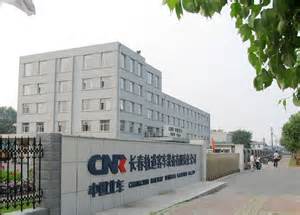China´s only high-speed rail (HSR) operator China Railway Corporation (CRC) will not be allowed to compete for Brazil´s HSR construction project due to a high-speed train accident in 2011, the 21st Century Business Herald reported Wednesday.
According to the Brazilian government, any railway operator with accidents in the past five years is banned from bidding, said Hélio Mauro Franca, director of the Brazilian Enterprise for Planning and Logistics, as quoted by the report.

The report said that the CRC, a commercial enterprise that spun off from the nation´s former Ministry of Railways this year, is not qualified for the bidding because of a high-speed rail crash two years ago in Wenzhou, East China´s Zhejiang Province.
On July 23, 2011, two high-speed trains collided on a viaduct in the suburbs of Wenzhou. The two trains derailed each other, with four cars falling off the viaduct. A total of 40 people were killed and about 200 were injured.
The Chinese company can, however, provide rail car parts, said Franca, noting that there is no ban on parts.
"China´s HSR has yet to be exported abroad," an unnamed staff member at the public relations office of Changchun Railway Vehicles Co, a Chinese rolling stock manufacturer under China CNR Corporation, was quoted by the report as saying.
Jean-Pierre Loubinoux, director general of the International Union of Railways (UIC), was cited by the 21st Century Business Herald as saying that the reason there have been no exports of -Chinese HSR is because China´s railway infrastructure and equipment manufacturing have focused on domestic HSR network construction.
The report cited an insider as saying that the obstacle is not technology, but finding a way to break through market barriers, with the most difficult challenges being qualifying for complex foreign technology certifications and bidding procedures.
High investment returns as well as the 2014 FIFA World Cup and the Rio 2016 Olympic Games have global HSR companies setting their sights on the Brazilian project, according to the report.
The project´s total budget amounts to around $17.8 billion and revenue is expected to be three times the investment when the project is completed.